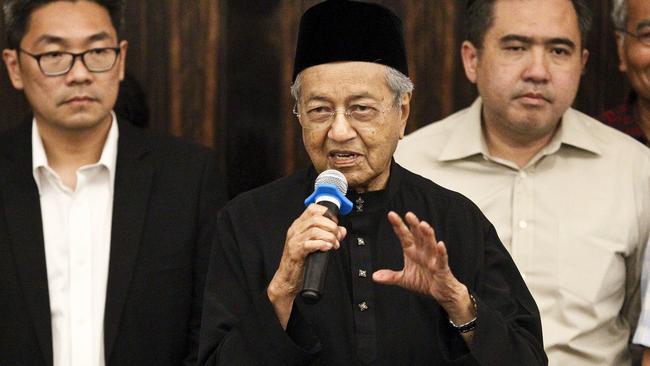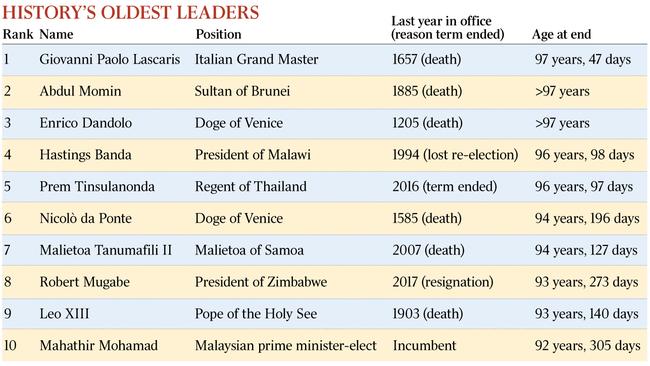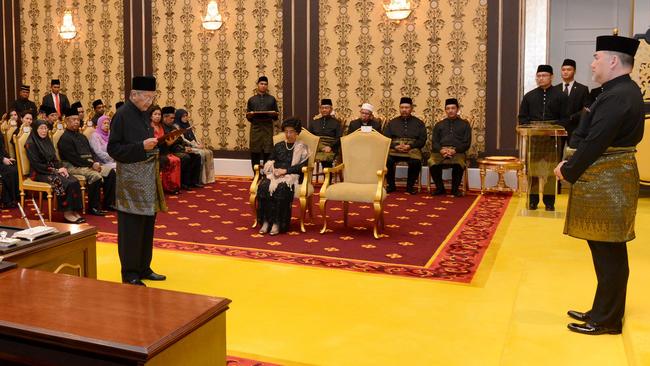Malaysia draws hope from the most extraordinary politician I know, Mahathir
Mahathir Mohamad, you are incredible. Take a bow. The 92-year-old must now rank as one of the most consequential leaders in post-war Southeast Asia.

Mahathir Mohamad, you are incredible. Take a bow.
At the sprightly age of 92, you have pulled off the first win from opposition, the first democratic change of government, in modern Malaysia’s history.
Mahathir is the most extraordinary politician I have ever met. He must now rank as one of the most consequential leaders in post-war Southeast Asia.
This astonishing upset win — against all the odds, against gerrymandering, media manipulation, the jailing of key opposition figures and much else — offers the chance to renew Malaysian politics and society.
Malaysia is far from being a broken-backed society and ousted prime minister Najib Tun Razak, a very good friend of Australia, was far from an irresponsible or failed leader. Even in recent years, Malaysia’s economy has had an annual growth rate of 5 per cent.
But Malaysians have felt trapped and let down, even embarrassed, by their ossified political system.
This election result is not a revolution born of despair but rather a successful society demanding that its politics should reflect its diversity, dynamism and creativity.
Najib’s government was assailed by too many corruption allegations, too much nepotism, too much of the old boys’ network.

One of the most eerie features of Malaysian politics is the way the dramatis personae never change. When I first started writing about Malaysia 25 years ago, its politics was dominated by Mahathir, Anwar Ibrahim, his then deputy, and Najib.
Anwar is in jail on dubious sodomy charges. Mahathir in defeating Najib has promised to secure a royal pardon for Anwar and then pass the prime ministership to him. In the meantime, Mahathir’s deputy will be Anwar’s formidable wife, Wan Aziza Wan Ismail.
It is all simply beyond belief. Any novel written along these lines in the past few years would have been laughed out of any publisher’s office.
Although this is a deeply hopeful moment, Malaysia’s future is unclear.
Will the forces behind the old order migrate to Mahathir’s new government? Will they resist it?
How lasting will the revolution in Malaysian politics be? What does the old ruling party, the United Malays National Organisation, stand for if not for government and patronage?
Mahathir has revolutionised Malaysian society once before, when he first became prime minister, and uniquely fused Islamic values of personal decency and restraint with modern economic dynamism and development. It was one of the most creative and fruitful political innovations in Southeast Asia.

It is a gross understatement to say Mahathir’s personal journey is unique. Originally a rural GP, he spent time in prison for political agitation before being brought into the ruling party. No leader was as tough-minded in the way he spoke to his countrymen about the need for reform and industry.
As prime minister, he was an epic nation-builder before falling out with the Western consensus during the East Asian economic crisis of the late 1990s.
Finally, what a magnificent personal example to people beyond their first youth: Mahathir had heart bypass surgery in the 1980s.
One factor in the result was nostalgia for the way Malaysia was under Mahathir.
But across countless interviews and tens of thousands of words I wrote about him, I learnt one thing: you could never predict Mahathir.
Hold on to your hats.






